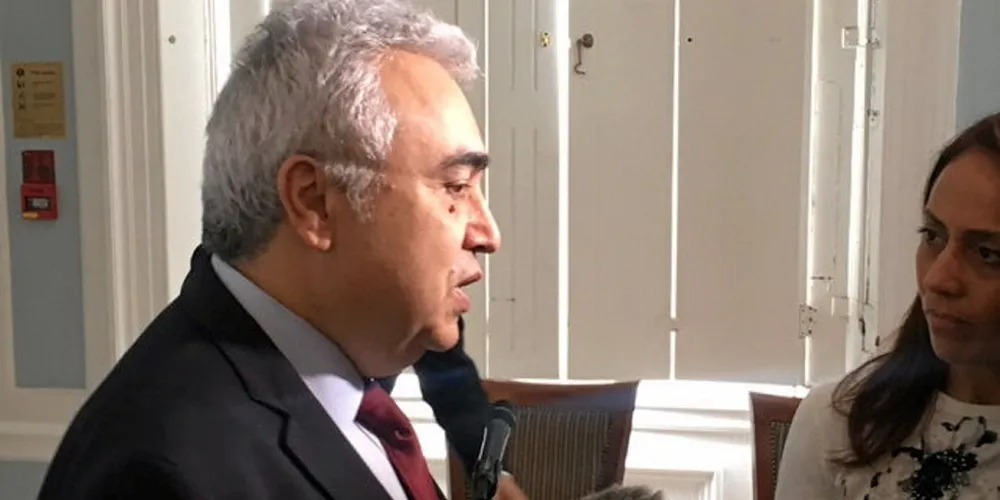'Absurd fallacy that global energy crisis is clean energy crisis': IEA's Birol
Head of International Energy Agency says governments 'wish they had more zero-carbon power' with renewables build-out key to boosting energy security

The global energy crisis is not a clean energy crisis but was solely triggered by the fossil gas supply crunch provoked by Russia, International Energy Agency executive director Fatih Birol said.
“I talk to energy policymakers all the time and none of them complains of relying too much on clean energy.
“On the contrary, they wish they had more. They regret not moving faster to build solar and wind plants, to improve the energy efficiency of buildings and vehicles or to extend the lifetime of nuclear plants.”
More low-carbon energy would have helped ease the crisis, and a faster transition from fossil fuels towards clean energy represents the best way out of it, Birol argued.
“When people misleadingly blame clean energy and climate policies for today’s energy crisis they are, intentionally or not, moving the spotlight away from the real culprits — the gas supply crunch and Russia.”
Another error is to think that today’s energy crisis is a setback that will impede tackling climate change, the IEA executive director said, adding that it is instead a “stark reminder of the unsustainability” of today’s fossil-dominated energy system.
He cited the EU and its REPowerEU plan as example of policies to use the crisis as an opportunity to achieve a cleaner and more secure energy system.
EU energy commissioner Kadri Simson
European energy commissioner Kadri Simson in a tweet agreed with Birol.
“Green energy is a solution to the current crisis, not the cause,” Simson said.
“Accelerating the use of renewables & prioritising energy savings will improve EU's energy security & help bring down energy prices.”
EU energy ministers will hold an extraordinary meeting Friday to discuss ways out of the crisis.
German stress test and nuclear maybe
Germany – Europe’s largest economy and in the eye of the hurricane of the continent’s energy crunch – may not agree with Birol’s enthusiasm for atomic energy, but much of the rest, as government action in recent days and months has shown.
To avoid the “very unlikely” case of hour-long crisis situations in the electricity supply during the coming winter, Berlin after a so-called ‘stress test’ of the power system decided to leave two of Germany’s three remaining nuclear power stations on stand-by until April 2023 as part of an electricity reserve. The plants originally were scheduled for permanent closure at the end of this year.
“We have enough energy in and for Germany; we are an electricity exporting country. But we are part of a European system and this year is a special year across Europe,” German economics and energy minister Robert Habeck said late yesterday.
“The Russian attack on Ukraine has created a tense situation in the energy markets and we are doing everything we can to avoid a gas shortage. Around half of the nuclear power plants in France are currently failing.
Habeck added that this summer’s drought has reduced the water levels in rivers and lakes, which weakens hydroelectric power in neighbouring countries and also makes it difficult to transport coal to the power plants used due to the tight gas situation.
The minister also blamed the predecessor government of former Chancellor Angela Merkel for a slow-down of the renewables and grid expansion in recent years, which is having a “particularly negative impact in the south of our country.”
Birol in his article also said the notion that Moscow is winning the energy battle is wrong. While Russia has short-term revenue gains, that is more than offset by the loss in both trust and markets it will face for years to come, he argued.
“Moscow is doing itself long-term harm by alienating the EU, its biggest customer by far and a strategic partner,” Birol wrote.
“Russia’s place in the international energy system is changing fundamentally, and not to its advantage.”
(Copyright)